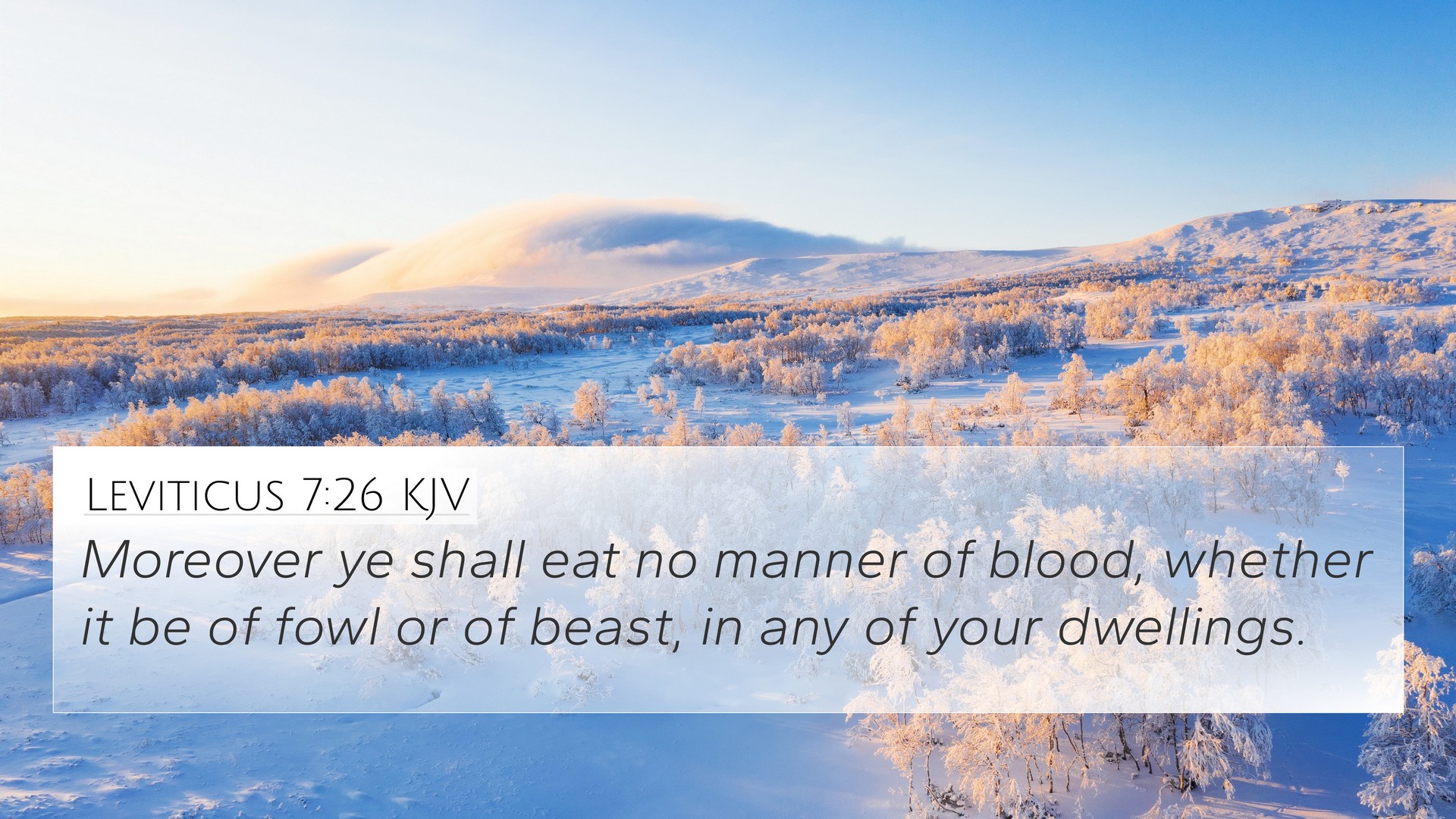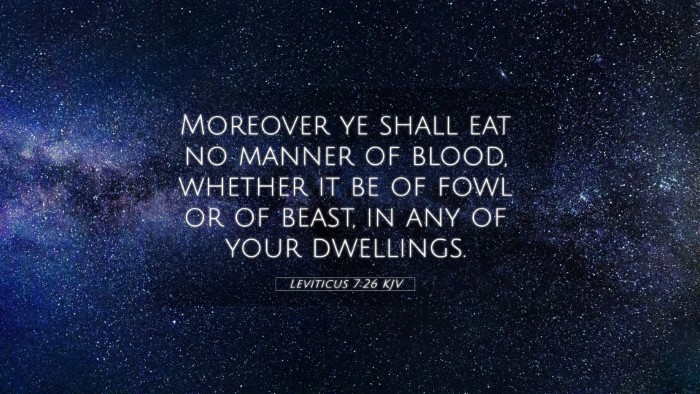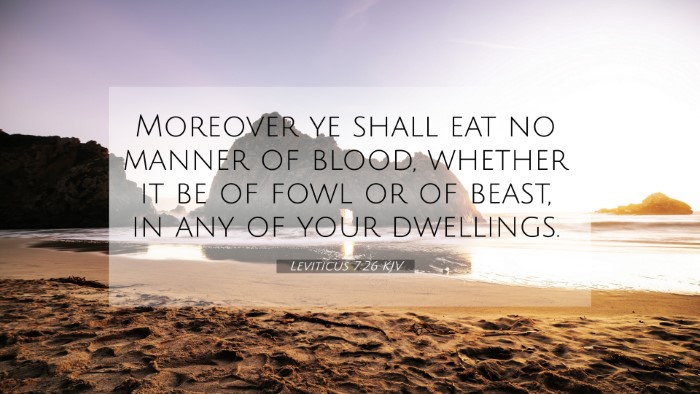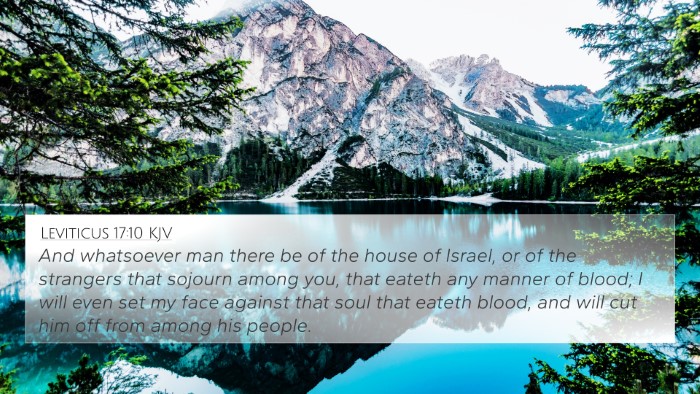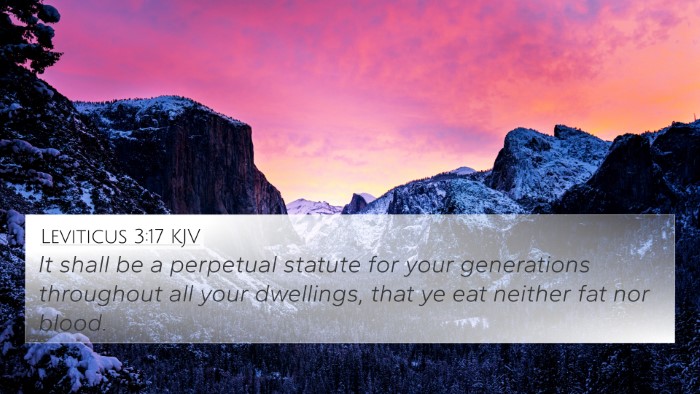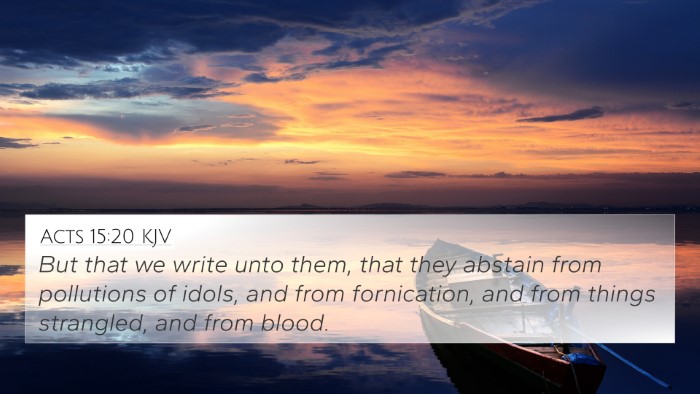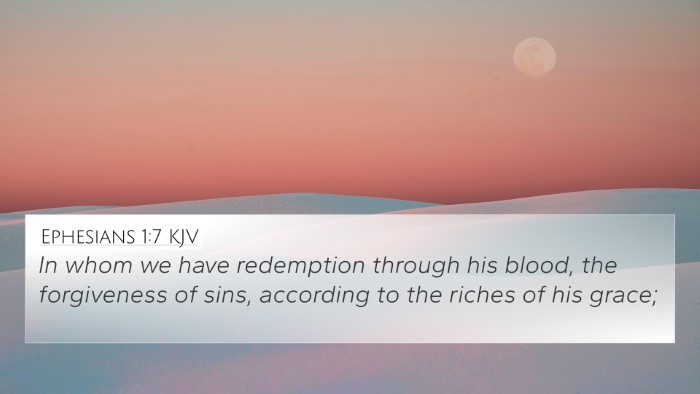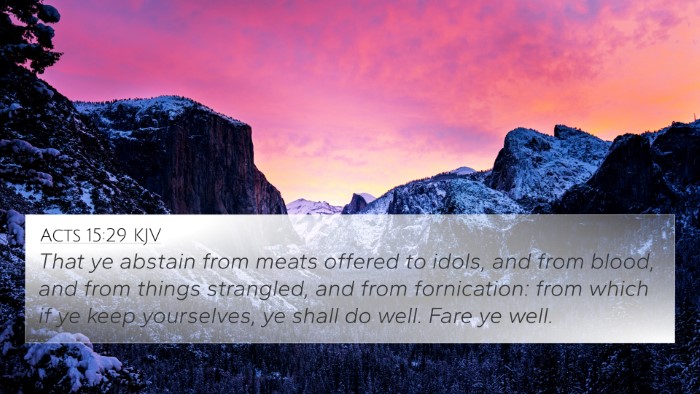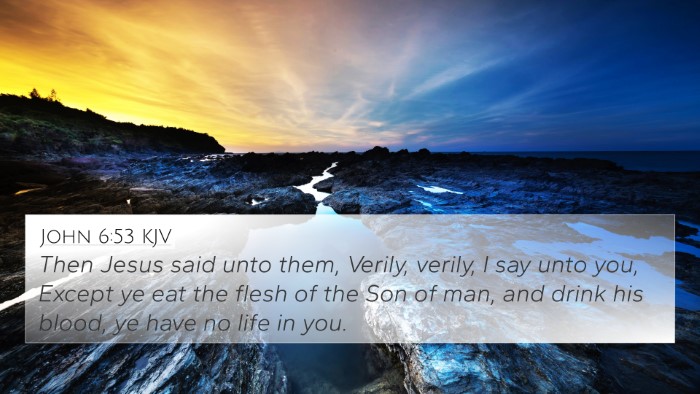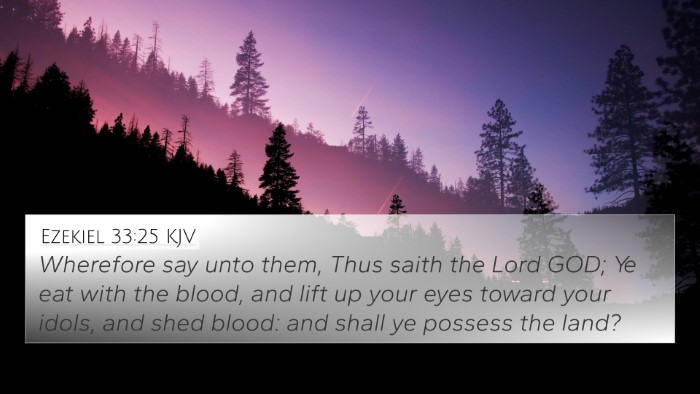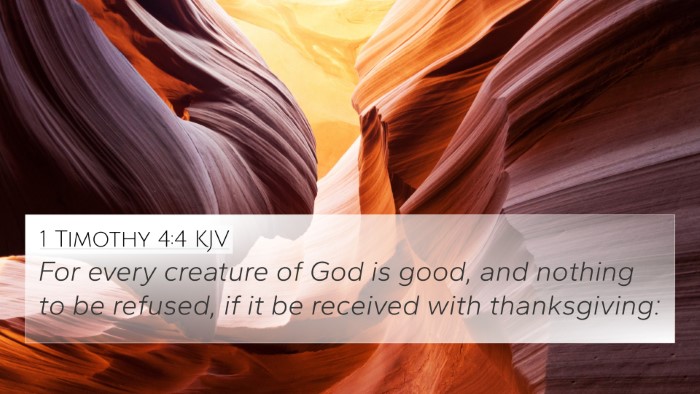Understanding Leviticus 7:26
Leviticus 7:26 states:
"Moreover, you shall not eat any blood in any of your dwellings, whether of bird or of beast." (NKJV)
Summary of Leviticus 7:26
This verse communicates God's command to the Israelites regarding the prohibition against consuming blood. Blood holds significant spiritual symbolism, representing life itself, and is set apart for sacred purposes such as atonement and sacrifice.
Commentary Insights
Matthew Henry's Commentary
Significance of Blood: Matthew Henry emphasizes that blood symbolizes life and should be respected. The prohibition highlights God's intent for the blood to be offered to Him and not consumed by the people.
Divine Command: Henry notes that these statutes were given to the Israelites to set them apart from other nations, ensuring they understood the sacredness of their worship practices.
Albert Barnes' Commentary
Spiritual Implications: Albert Barnes underlines that the act of consuming blood in ancient times could be associated with pagan rituals. Thus, the Israelites were given clear instructions to avoid these practices in order to maintain their holiness before God.
Covenant Obedience: Barnes also points out that obedience to this command is rooted in God's covenant with His people, demonstrating a commitment to living according to His ways.
Adam Clarke's Commentary
Contextual Understanding: Adam Clarke elaborates on the cultural background during the era. He references the importance of blood in sacrificial systems and how it was viewed in different cultures, linking it to how God’s law was meant to create a holy distinction for His people.
Symbol of Redemption: Clarke highlights the connection of blood to redemption and atonement that prefigures New Testament teachings on the blood of Christ.
Cross References and Related Verses
- Genesis 9:4 - Prohibition of consuming blood.
- Leviticus 17:10-14 - Commands regarding blood.
- Deuteronomy 12:23 - Emphasis on the sacredness of blood.
- Hebrews 9:22 - The necessity of blood for atonement.
- 1 Peter 1:19 - The precious blood of Christ as a theme of redemption.
- Acts 15:20 - Apostolic decree on abstaining from blood.
- Romans 5:9 - Justification through the blood of Christ.
- Matthew 26:28 - The blood of the covenant as established by Christ.
- 1 John 1:7 - The cleansing power of the blood of Jesus.
- Revelation 7:14 - The connection of the blood of the Lamb to salvation.
Connections and Themes
This verse underscores the broader Biblical theme of life, holiness, and sacrificial atonement through the symbolism of blood. Understanding Leviticus 7:26 requires acknowledging its intertextual links throughout Scripture:
- Life in Blood: Examining the foundational principle that life is in the blood (Leviticus 17:11).
- Holiness Practices: Recognizing the distinct sanctity in dietary laws that God established for His people (Leviticus 11).
- New Testament Fulfillment: The transition in understanding blood as reflective of Christ’s ultimate sacrifice (Hebrews 9).
Thematic Bible Verse Connections
This verse can be part of a larger study on dietary laws, sacrificial rites, and the importance of blood in both Old and New Testaments. In exploring the connections between these scriptures, one can draw a comprehensive picture of God's intent for His people:
- Old Testament Sacrifice: The rituals of sacrifice and the theological implications of blood throughout the Pentateuch.
- Jesus and Sacrifice: The correlation to Jesus' sacrifice and the establishment of the New Covenant through His blood.
- Pagan Practices: The significance of the distinction made between the Israelites and surrounding nations with their blood rituals.
Tools for Bible Cross-Referencing
As you explore Leviticus 7:26 and its connections, utilizing cross-reference tools can facilitate a deeper understanding of these verses:
- Bible concordances to locate related scriptures.
- Bible cross-reference guides for comparative studies.
- Chain references to see links between verses.
- Comprehensive Bible cross-reference materials for excelled understanding.
Conclusion
Leviticus 7:26 represents a significant command from God that transcends mere dietary restrictions; it invokes themes of life, holiness, and divine relationship grounded in the atoning sacrifice. By cross-referencing with various scriptures, one can appreciate the depth of this command and its implications for both the Israelites and New Covenant believers.
